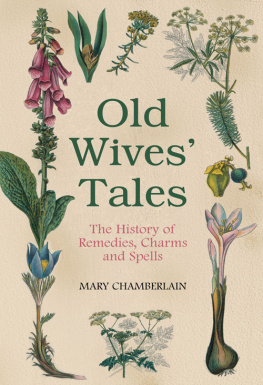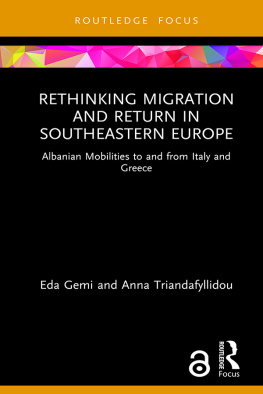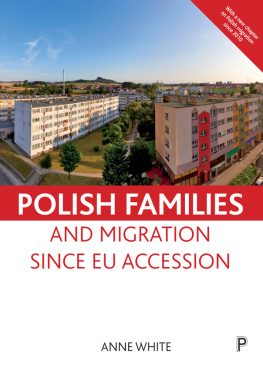
Narratives of Exile and Return
Memory and Narrative Series Mary Chamberlain and Selma Leydesdorff, series editors
Trauma: Life Stories of Survivors Kim Lacy Rogers and Selma Leydesdorff, editors (with Graham Dawson)
Commemorating War: The Politics of Memory Timothy G. Ashplant, Graham Dawson, and Michael Roper, editors
Environmental Consciousness: The Roots of a New Political Agenda Stephen Hussey and Paul Thompson, editors
Memory and Memorials: From the French Revolution to World War One Mathew Campbell, Jacqueline M. Labbe, and Sally Shuttleworth, editors
The Stasi Files Unveiled: Guilt and Compliance in a Unified Germany Barbara Miller
The Uses of Narrative: Explorations in Sociology, Psychology, and Cultural Studies Molly Andrews, Shelley Day Sclater, Corinne Squire, and Amal Treacher, editors
Narrative and Genre: Contexts and Types of Communication Mary Chamberlain and Paul Thompson, editors
The Clash of Economic Cultures: Japanese Bankers in the City of London Junko Sakai
Narratives of Exile and Return Mary Chamberlain
Narratives of Exile and Return
With a new introduction by the author
Mary Chamberlain
Memory and Narrative Series
First publishe d by St. Martins Press in 1997.
Published 2005 by Transaction Publishers
Published 2017 by Routledge
2 Park Square, Milton Park, Abingdon, Oxon OX14 4RN
711 Third Avenue, New York, NY 10017, USA
Routledge is an imprint of the Taylor & Francis Group, an informa business
Copyright 1997 by Mary Chamberlain
All rights reserved. No part of this book may be reprinted or reproduced or utilised in any form or by any electronic, mechanical, or other means, now known or hereafter invented, including photocopying and recording, or in any information storage or retrieval system, without permission in writing from the publishers.
Notice:
Product or corporate names may be trademarks or registered trademarks, and are used only for identification and explanation without intent to infringe.
Library of Congress Catalog Number: 2004058027
Library of Congress Cataloging-in-Publication Data
Chamberlain, Mary, 1947
Narratives of exile and return / Mary Chamberlain.
p. cm.(Memory and narrative)
Originally published: New York: St. Martins Press, 1997. With new introd.
Includes bibliographical references and index.
ISBN 0-7658-0824-2 (pbk. : alk. paper)
1. Caribbean AreaEmigration and immigration. 2. Return migration Caribbean Area. 3. BarbadosEmigration and immigrationCase studies. 4. RetummigrationBarbadosCase studies. I. Title. II. Series.
JV7321.C43 2004 304.8729041dc22
2004058027
ISBN 13: 978-0-7658-0824-0 (pbk)
An appropriate subtitle for Narratives of Exile and Return would have been transgenerational life stories and the migration journey, for the focus of the book is as much on the narratives of migration as the ways in which they were played out through families across the generations, and across the oceans. Although the use of life story methodology was to reveal the dynamics of a Caribbean migratory culture (and to challenge many of the former models of migration behavior), what it also revealed was the central-ity of families not only in enabling migration, but in the lives of Caribbean migrant people, at home and abroad. It is this latter point, on the importance of families in the Caribbean and its Diaspora, which is appropriate to highlight in the introduction to this new edition.
There is no other region of the world whose character has been so molded not only by migration into the area, but equally out of it on a long-term and continuing basis, where departing migrants continue to maintain, and replenish family links with the region, and, where possible, return in retirement. As a result, the links between the Caribbean and its citizens abroad have been reinforced, and extended across the generations.
Like their African American counterparts, Caribbean families dispersed through migration (and often generations of migrants) hold regular reunions that bring together kinfolk in their hundreds.
The clue to the importance of the family is found in the seminal influence of migration on the culture of the Caribbean, enabled, facilitated, and permitted by families. In this, the family story is central to the narratives of migration, as well as to the networks and support systems that migrants need and utilize. It is also found, relatedly, in the emphasis placed within Afro-Caribbean families on lineage and descent lines, from either side of the family, the importance of ties of consanguinity and affinity, and fused kinship and family practices from African and European influences to create new, unique, Creolized families. From the start, therefore, Caribbean families were creative, transcultural institutions, a heritage that served them well in their subsequent migratory journeys as those transcultural families emerged into modern day transnational families with vibrant links with family members across oceans, generations, and locales. For families formed on the margins, and often forced to live there, the centrality of that history is integral to their sense of self; it contains also a strong message of survival and identity, for the nurturing tradition of Caribbean families ensures a safety net for all its members and a continuing source of cultural and national belonging.
Since the first edition in 1997 of Narratives of Exile and Return, a scholarly momentum has emerged on the meanings and implications of transnationalism, particularly transnationalism from below, on the everyday movements of peoples and products, which continues on a regular basis below the visible plimsoll line of major state or corporate involvement. Although the locus of the research was Haiti and the United States, the links between family and national belongings and pride added a further, and very relevant dimension to the debate on transnationalism and one which had resonances in my work on Barbadian migrants, by pointing to the importance of the imaginary and the emotional life across borders through which transmigrants live and order their lives.
It was through families that remittancesso crucial to the survival and mobility of the Caribbeanflowed. But it was also through transnational families that political ideas and organizational skills flowed. It was also transnational families who challenged, and continued to challenge, the borders of the nation state, by globalizing identities and internationalizing living spaces. And it was through families that culture continued to flow.
Neither the significance of transnationalism, nor the impact of Caribbean migrants to the metropolis was recognized when West Indians arrived in the United Kingdom. The British response was local and parochial. Immigrants, and immigration, needed to be managed to ensure the smoothness of race relations in the country. What migration represented in terms of transnational and transcultural crossings was passed by. It was widely assumed, in the 1950s and 1960s, that the migration of West Indians to Britain was to escape the poverty of the Caribbean. That West Indians arrived from societies where migration, and return migration, had been a feature for at least a hundred years was either not known, or ignored. That West Indians may have








